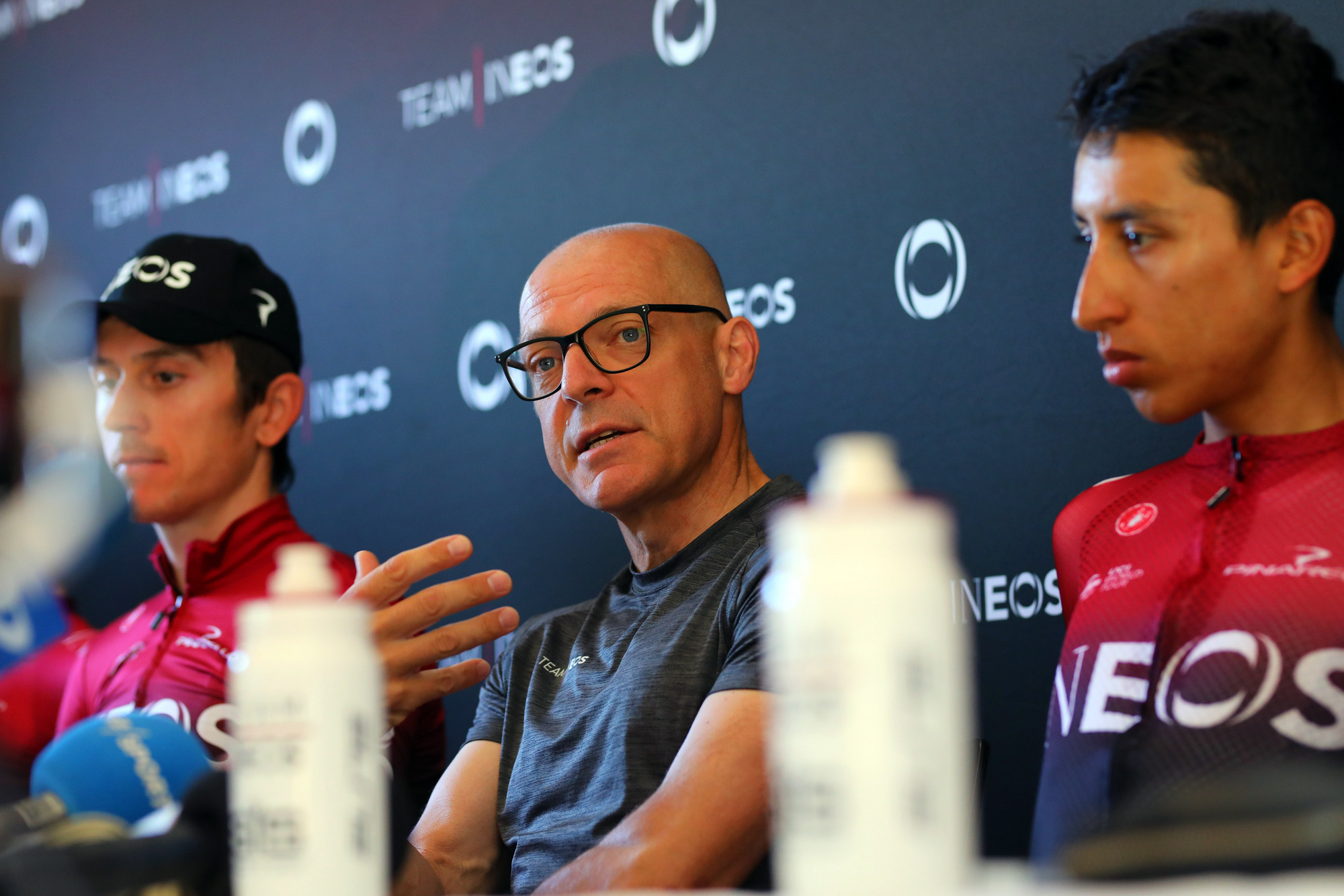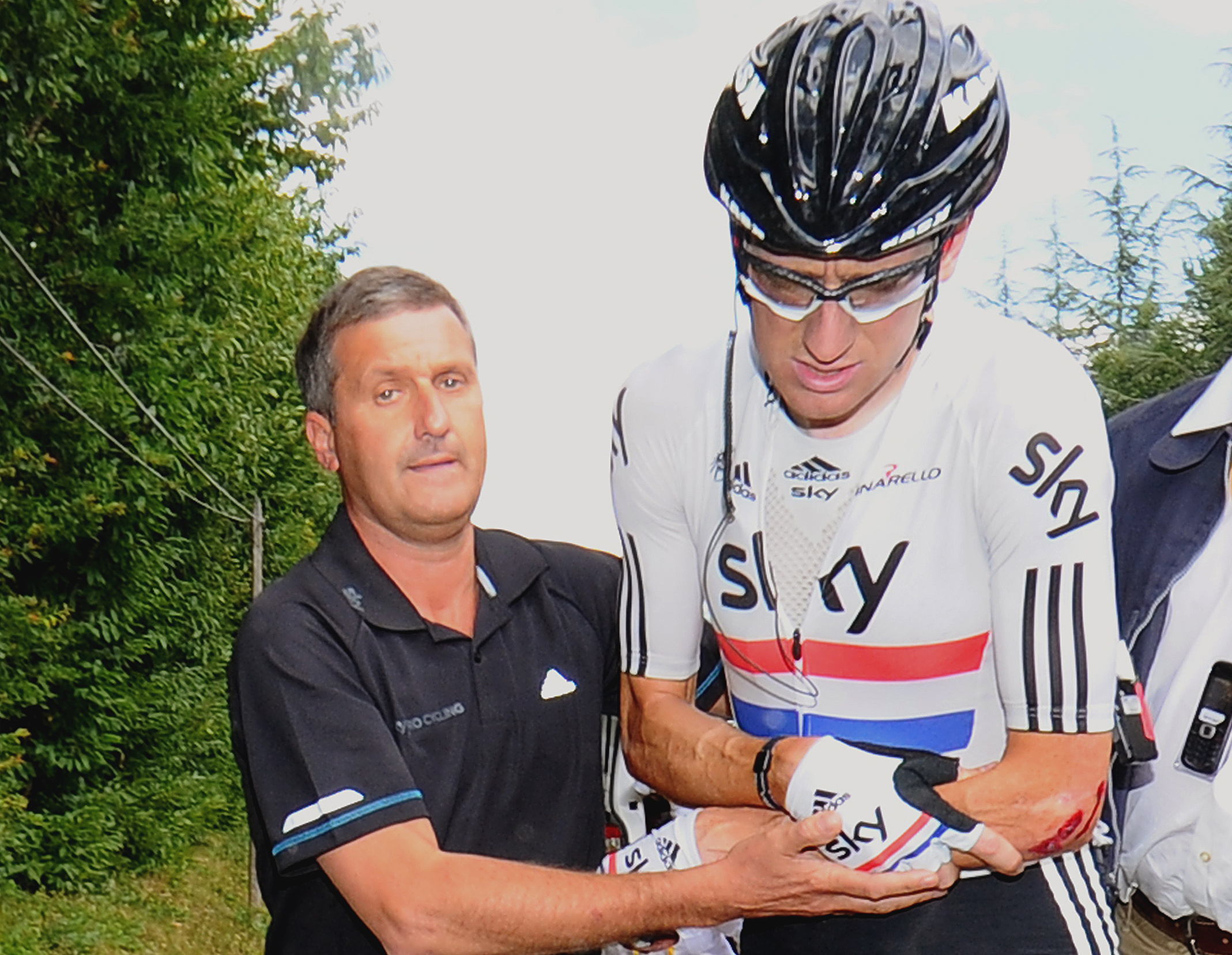Freeman verdict provides more uncomfortable questions for Dave Brailsford and British Cycling
The aftershocks show no sign of easing after the latest developments

With almost perfect irony, the Richard Freeman medical tribunal verdict came almost a week after what many consider the most beautiful and evocative one-day race in the cycling calendar, Strade Bianche. But then hardened peloton watchers will know that this is the reality of the sport they love: within all the gripping drama and grand spectacle, there lurks sometimes a dark heart. In that sense, many of them will be unsurprised by the outcome of the Freeman tribunal.
Richard Freeman, the former Team Sky and British Cycling doctor, was found guilty of ordering testosterone “knowing or believing” it was to be given to a rider to improve their athletic performance. The verdict ends, in part, a long saga surrounding Freeman that was both protracted and at times, farcical, but there is no doubt that the aftershocks will continue for some time.
The great and good working at British Cycling and Team Sky at that time put out statements proclaiming their surprise at the outcome and maintaining that they had no knowledge of wrongdoing. Freeman, they suggested, despite his near-decade-long involvement, was acting alone, a rogue medic, beyond the control of governance or management.
Nobody, it seemed, despite professing repeatedly that it was their attention to detail, methodical preparation, and outstanding professionalism that had given them a winning edge, seemed to know much about what Freeman was doing. The UK Anti-Doping (UKAD) investigation into the Freeman case may yet shed further light on the veracity of that.
Dr Freeman found guilty of ordering testosterone 'knowing or believing' it was for a rider
Shane Sutton: Freeman case has cast a shadow over Team Sky and British Cycling
Ineos Grenadiers distance themselves from Freeman after guilty verdict
Dave Brailsford should be suspended following Freeman verdict, says DCMS member
Shane Sutton, whose explosive appearances added to the drama of the Freeman hearings, said: "I'd like to stress that neither I nor Dave Brailsford knew about the testosterone order. But I think it's important to find out who the doctor ordered it for."
He added: "I remain disappointed that I was used as a scapegoat."
In a statement, Ineos Grenadiers (formerly Team Sky) said that Freeman "fell short of the ethical standards required of him as a doctor and acted dishonestly," before adding that they did not believe that "any athlete ever used or sought to use Testogel or any other performance enhancing substance."
Get The Leadout Newsletter
The latest race content, interviews, features, reviews and expert buying guides, direct to your inbox!
Brian Cookson, President of British Cycling for over 15 years, said that anti-doping was "a key focus of my time both with British Cycling and later with the International Cycling Union (UCI)" and that he had worked "to ensure robust and independent testing, transparency and to establish a culture of fair play."

Doctors stay silent
Silent in all of the reactions to the Freeman verdict from senior management at Team Sky and British Cycling were the voices of the doctors and consultants themselves. There have been plenty of them over the years, a list of names that reaches double figures, as various incarnations of the team operated what at times seemed like a revolving door of medical advisers.
Some stayed in place for lengthier periods, with Freeman being the principle example of that, while others, such as Irishman Alan Farrell, who is now believed to be working in Texas, spent a briefer period with the team. Some, although it's not clear who, are also understood to have signed non-disclosure agreements when they left the team.
After the Freeman verdict, Cyclingnews attempted to reach Farrell but did not receive a response.
According to past reports in the Sunday Times, Farrell had already expressed misgivings about Freeman's use of TUE's, some years ago. The Irishman however, was at the heart of the confusion over the revelation of Chris Froome's TUE use at the 2014 Tour of Romandie, which became public knowledge during that year's Criterium du Dauphine. Froome's usage of a TUE, during the Swiss stage race in April that year, which he won overall, broke on the morning of the Dauphine's final stage to Courchevel.
Asked at the start in Megeve about the timeline of Froome's TUE request, Brailsford directed reporters to then team doctor Farrell, who was already on his way to the finish line at the ski station. However, Farrell became emotional when asked about the circumstances surrounding the TUE timeline and declined to offer any clarification. He then left the team in 2015.
Freeman too, evaded accountability with the media, when confronted by the BBC's Dan Roan and other reporters in 2016. His subsequent ill-health prevented him from appearing in person before a House of Commons select committee in 2017 and significantly delayed the medical tribunal hearings, during which he was mocked and abused as "spineless" by an angry Sutton.
In an interview with the Daily Mail, this weekend, Freeman said: "I've made plenty of mistakes but I'm not a doping doctor." He also said that he had suffered chest pains in February and had been taken to hospital.
"Everyone says doctors don't look after themselves. People say there are moments that change your perspective on life and in the hospital that night, I did. It has been stressful these past few years but what matters is health, family, getting on with my life."
Others, including Fabio Bartalucci, former coach to Nicole Cooke, have spoken to cyclingnews.com about their experiences working with the team.
"I thought I was hired for a series of reasons," the Italian said. "Out of respect and interest for what I'd helped Nicole Cooke achieve without a single injection, and for what I could bring to the team in terms of my medical experience in professional cycling. I also thought there was respect and consideration for me as a doctor and as a person."
Bartalucci was said to have assisted with Team Sky's intravenous 'recup' treatments. "It was a simple 'recup' programme" he said, "far less than other teams probably did. Of course, when the no-needle ban was announced (by the UCI), the IV recovery plan was dropped."
But when Bartalucci's time with the team came to an end in late 2012, the Italian felt let down.
"When I talked to Dave Brailsford over dinner after the Tour de France route presentation in 2010, I thought I'd finally found a good team manager and someone I could trust," Bartalucci said.
"Dave came into the sport banging his chest, with his arrogance clear to see even now. It's always a mistake to publicly say 'We're different to everyone else, we don't do what they do.' When you then make a mistake, all your rivals come after you and nobody gives you a hand."
Infamously, even though his reputation was subsequently to be destroyed by the doping investigation into his work with the Dutch Rabobank team, Brailsford also hired Belgian doctor Geert Leinders, now banned for life, as a consultant in 2010. That decision to take him on was met with incredulity by many in the Dutch media, who regarded Leinders with complete scepticism.
Leinders was hardly ever 'on message' during his time with Team Sky, though, telling the Dutch press in May 2012, that "zero tolerance has nothing to do with cycling."
In 2012, as Bradley Wiggins won a series of races including the Tour de France and an Olympic gold medal, Brailsford was taken to task about the team's relationship with the former Rabobank doctor. He strongly defended his hiring of Leinders and then cited the judgement of his team's doctors. “I’ve seen nothing," he said of Leinders, "and neither have the full-time medics."
One of those full-time medics, whose expertise Brailsford was then happy to rely on, was the now-exiled Richard Freeman, found guilty of ordering testosterone by a medical tribunal and now facing further charges from UK Anti-Doping.
Unanswered in all of this, is how Team Sky and British Cycling, champions of clean sport and of rigorous vetting procedures, could have been so unaware of Freeman's chaotic behaviour.
In March 2017, just months after the DCMS hearings in Westminster, I interviewed Emma Pooley following the leaking of another report, on this occasion, allegations of sexism and bullying at British Cycling.
"A fish rots from the head," Pooley said of the findings. "...when people criticise, they need to think back to who is providing the leadership and not tar everyone with the same brush. Rather than blaming everyone, people need to look at who was setting that culture. It doesn’t mean that everyone in British Cycling is flawed like that.”